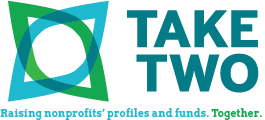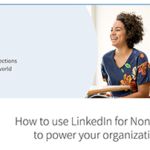
Can Board Members Be Spokespersons?
Can your board members be ambassadors for your nonprofit? They’re usually leaders in their fields, they have extensive networks of contacts and above all, they (most often) are on your board because they feel a strong affinity to your cause. What could be a better recipe for spokespersonship?
But despite possessing all these ingredients, board members often don’t speak up on behalf of the nonprofits they represent. And many an executive director tears her hair out wondering why.
The operative word here is “speaking”. What we’ve found is that many board members don’t speak out publicly – whether at events or in their friends’ circles – because they do not feel sufficiently prepared or empowered to speak convincingly about your organization.
Why?
Often, it’s because even though they’re on your board, they don’t know enough about what you actually do – yes, the little details that matter. Many are concerned about saying the wrong thing and misrepresenting your organization.
In other cases, they simply don’t see speaking about your organization as part of their role as a board member. This is especially true when board members are recruited to play a specific role, such as acting as legal advisor which, traditionally, may not require any public speaking.
And finally, some board members don’t act as spokespeople because they’ve never been asked to.
Time to change that. And here’s how:
- Set and manage expectations: Do you have a description of your Board members’ roles? How specific is it? And does it include speaking about your organization to friends, colleagues, other institutions, donors and the “public”? When you’re inviting someone to join your board, be clear about what you expect and go through the description of their responsibilities with them. It doesn’t need to be a detailed document (short is best!), but it must be reviewed. And through the discussion, you will also find out if your own expectations are realistic; not everyone is cut out for public speaking.
- Empower with training and tools: Some of your board will be able to speak about your organization with just a review of your website. But most will need a little more than that. Give board members a one-pager of talking points – and make sure the language is simple, conversational and to the point. If they have to interpret “program speak” from reports they are handed, it’s unlikely they’ll speak on your behalf. Some board members may never have had to speak publicly – even with a group of friends – about your organization. Bring in an outside trainer (yes, we provide such trainings!) to help board members understand your message and re-shape it in their own words, so that they are not parroting your brochure but are speaking authentically for themselves. And, alongside trainings and talking points, take your board members on a “program tour” so they can meet staff, the constituents you serve and experience a program or activity for themselves. This will give them a “real” sense of your work and an experience they can draw from when they speak with anyone… even a year or two down the road.
- Provide concrete opportunities: So you’ve done trainings and shared tools, but you’re still not seeing results. Now is the time to give board members concrete chances to speak on your behalf: perhaps one of them can introduce your organization at a social gathering, another might be appropriate to give a key note at an event you are hosting – or better still, one that someone else is hosting. Find a couple of opportunities that would be the right fit for each person and help them prepare for the first time they have to act as spokesperson. Once they’ve done it on your request, they’ll be more confident and empowered to do it on their own.
- Invite ideas – and act on them: If you truly want your board members to feel ownership about being spokespeople then ask them for their ideas on the types of venues and settings where they’d be most willing to speak on your behalf. And then, be prepared to act on it, knowing your staff’s capacity and the programming you already have in place. Where possible, get board members to work together so they can play to each other’s and their own strengths – and save you work.
What other strategies have worked for you to empower your board members to be the powerful spokespersons they can be? Share the love!





